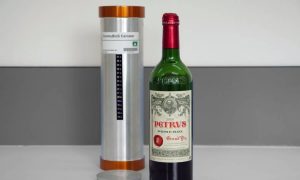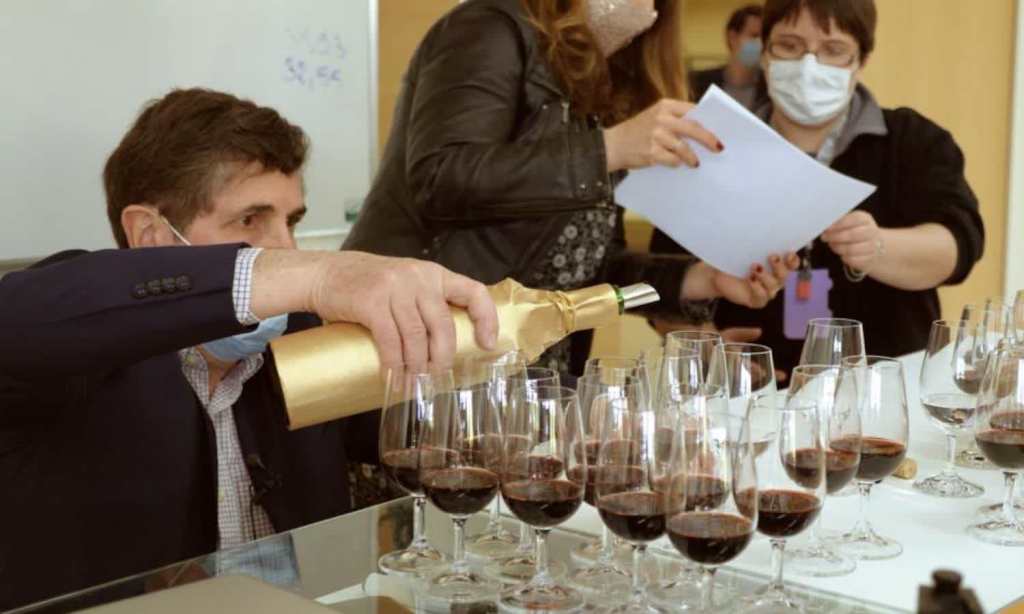So, how does the ageing process work in outer space?
One of the most mind-boggling things about outer space, is the concept of time. For those of us that aren’t astronauts, we’ve only seen the experience of travelling to outer space through film, where it’s always shown that the astronaut comes back practically ageless, to a family that looks decades older.
Now this might be a good old fashioned Hollywood exaggeration, however, time dilation is a real thing. It goes back to Einstein’s theory of special relativity, which teaches us that motion through space creates alterations in the speed of time.
Although it’s not as extreme as portrayed in film, time dilation is scientifically proven to be real. An astronaut returning from a space expedition at “relativistic speeds” (one-tenth the speed of light) would return younger than friends and family of the same age.
With this information we’ve got to question how the wine-ageing process would work in outer space. Does the wine age slower, like humans? Could this be a method of keeping wine “good” for longer than down here on Earth?
And, most importantly, what does outer space-aged wine taste like?
Well, it just so happens that a dozen bottles of French Bordeaux wine just came back from the International Space Station and we’re about to find out.
Via another wild SpaceX brainchild, their “Dragon” cargo ship carried the bottles as part of a research project led by Space Cargo Unlimited, in collaboration with the University of Bordeaux’s wine institute, ISVV.
Now that the bottles have been returned safely back to planet Earth, Space Cargo Unlimited has revealed that the vintage for the study was the Petrus 2000, an expensive and luxurious combination of Loubat and Moueix, very highly regarded by wine snobs.

The bottles spent 438 days and 19 hours onboard the ISS, at an altitude of 400 km (248 miles), and spent time in zero gravity. The total journey clocked in at an estimated 300 million km, which is 187 million miles, or about 300 trips between the Earth and the moon.
In an event held at ISVV recently, 12 tasters were given 30ml samples of the wines, one of which was Jane Anson, the Bordeaux correspondent for Decanter.
“The earth wine was exactly how you would expect it to taste,” says Anson, going on to compare it to the “space wine”.
“There were more floral aromatics in the space wine. The tannins were a bit softer and more evolved. I just tasted one bottle, so I can’t guarantee there isn’t bottle variation.”
Interestingly, although not hugely different, the wine seemed to age more in outer space – the opposite to what happens with human ageing.
Some of the vine cuttings were also sent to outer space, where they were observed to grow faster. Continued research is being done around the production of vine plants and the impact of microgravity on the growth of varietals.
Another esteemed taster, Philippe Darriet, a professor in ISVV’s oenology research unit said, “Unanimously, the two wines were considered to be great wines, which means that despite the 14-month stay on the International Space Station, the ‘space wine’ was very well evaluated sensorially.”
But the major differences in the wines were their colour, with the space wine showing a lighter hue than the Earth wine.
Panelist commentary, according to Space Cargo’s press release, called out the change in the wine’s colour. “Difference in colour; the space wine has light brick colouring,” “Ruby hues with brick-like reflections,” and “As for the colour of the edges, there are shades of brick, slightly more pink along the disk” were among the notes.
Overall, the wines were described as rich, with a “remarkable olfactory and gustatory complexity; sensory dimensions of sweetness, harmony, and persistence were particularly noted” according to Darriet’s notes.
In addition to being professionally sampled, the wines will also be subjected to chemical analysis as well as genome testing on the vine cuttings.
The purpose behind this study was to stress-test plants in a completely different environment, to see if they can survive elsewhere, in an effort to help combat climate change.
Regardless of what else they discover – we’re imaging vineyards in space – at least we now know that space-aged wine is just as delicious.
Read more stories from The Latch and subscribe to our email newsletter.







